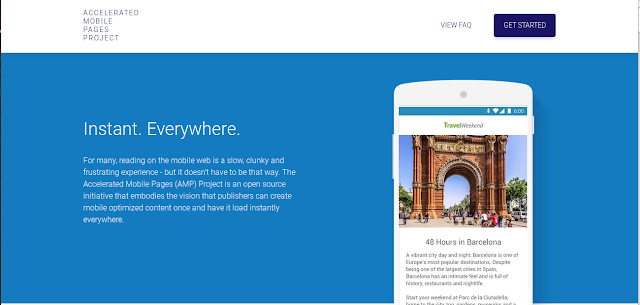Most of the people in world are Smartphone users. Publishers around the world use the mobile web to reach these readers, but the experie...

Google unveiled a new open source initiative now that it’s calling the Accelerated Mobile Pages Project.The Accelerated Mobile Pages (AMP) Project is an initiative to improve the mobile web and enhance the distribution ecosystem. If content is fast, flexible and beautiful, including compelling and effective ads, we can preserve the open web publishing model as well as the revenue streams so important to the sustainability of quality publishing.
AMP HTML is a new way to make web pages that are optimized to load instantly on users’ mobile devices. It is designed to support smart caching, predictable performance, and modern, beautiful mobile content. Since AMP HTML is built on existing web technologies, and not a template based system, publishers continue to host their own content, innovate on their user experiences, and flexibly integrate their advertising and business models -- all within a technical architecture optimized for speed and performance.
How will AMP impact organic search?
Like the Google News box when it debuted, the AMP module disrupts the search experience by appearing at the top of the SERP and pushing everything else down.The most immediate impact for publishers that don’t opt into AMP will be a decrease in impressions and clicks, even with a top organic position. Since the AMP module appears at the top of the SERP (for now), organic results are pushed below the fold.
Throw paid search ads into the mix, and scrolling is unavoidable to get to traditional organic listings.
For publishers that are opted into AMP, traffic will likely increase for short-tail terms where the module is likely to be activated.
It is also worth noting is that any links within the article text still work in AMP view and will open in a new window. If the goal is to drive users to the full site experience, it may be prudent to front load links.
Follow us on Facebook: facebook.com/CybUp










